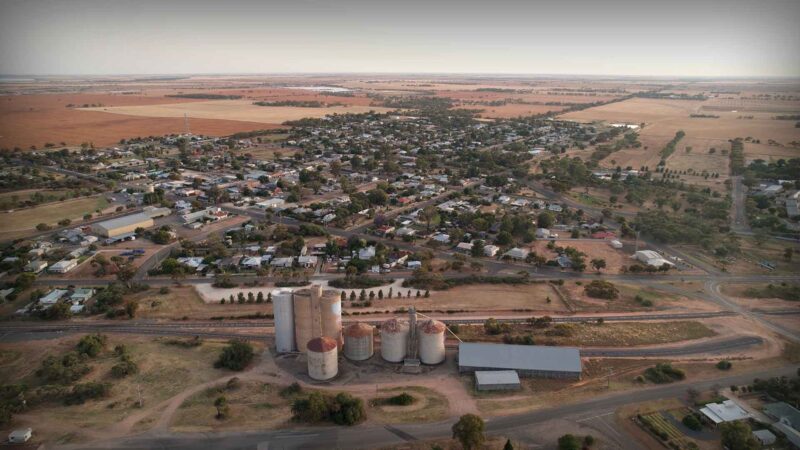STUDY: FIRST TIME STROKE SURVIVORS HAVE SUBSTANTIAL IMMEDIATE AND ACCELERATED LONG TERM-COGNITIVE DECLINE New evidence points to vascular risk factors exerting impact on cognitive function years before stroke onset
SEGMENT
Filmed in Sydney | January 2025
New evidence from the Centre for Healthy Brain Ageing (CHeBA) indicates that older adults who experience a stroke for the first time will have substantial immediate and accelerated long term-cognitive decline.
Stroke is a leading cause of disability and dementia globally, with projections indicating a continued rise in both prevalence and burden. The new research, published in October 2024 in JAMA Network Open, looked at finding out exactly how a stroke impacts a person’s cognitive abilities.
Stroke occurs when blood flow to part of the brain is blocked or reduced, causing damage to brain cells. Previous research from the Centre has shown that more than a third of stroke survivors’ ability to think, remember and make decisions is significantly disadvantaged after stroke, with clear deficits in cognition or vascular dementia present.
Vascular dementia, the second most common type of dementia, is caused by reduced blood flow to the brain. The research, led by biostatistician and Research Associate Jess Lo, addressed many unanswered questions about this dementia type, which is yet to be studied as extensively as Alzheimer’s disease.
“Although we do experience changes to our brain functioning over time and as we age, certain medical conditions can potentially speed up these changes, which may lead to cognitive impairment or dementia,” says Lo.
The research analysed data from 14 studies that followed community dwelling older adults without a history of stroke or dementia, with an average age of 73 over many years, tracking their health and cognitive abilities. The studies, part of the CHeBA-led international Cohort Studies of Memory in an International Consortium (COSMIC), span 11 countries including Australia, Brazil, France and the US.
With data from 20,860 participants, the researchers identified people who experienced their first stroke during the study period.
The research also found that individuals who had a history of diabetes, hypertension, high cholesterol, cardiovascular disease, depression, smoked or were APOE4 carriers exhibited significantly faster cognitive decline before any stroke.
Senior author on the paper and Co-Director of the Centre for Healthy Brain Ageing (CHeBA), Professor Perminder Sachdev, said that this global collaborative study highlights the significant and lasting negative impact of stroke on brain cognition.
“Our findings can help clinicians better plan for the ongoing needs of stroke survivors who are at risk of disability and a lower quality of life,” said Professor Sachdev.
You Might also like
-
HIGHLIGHTS Consumers and communities as agents of health care change and improvement
Policymakers, health administrators and clinicians must learn and embrace new ways to harness the transformative role consumers, community members and carers can play. Conversely, consumers and communities need support, capability and capacity to engage as equals in policy, research, program and service design. This is necessary if are to be less technocratic and realise the vision where all members of society can live the best life possible.
-
The role of genomic screening in transforming public health
Dr Jane Tiller is a lawyer, genetic counsellor and public health researcher. She is Ethical, Legal & Social Adviser in Public Health Genomics at Monash University, and a National Health and Medical Research Council Investigator Grant holder. Jane is passionate about the use of genomics to prevent disease, and in delivering equitable access to preventive genetic information at the population level. She is co-lead of DNA Screen, a world-first study piloting the offer of preventive DNA screening to the Australian adult population. DNA Screen has tested over 10,000 young people for genetic high risk of medically actionable conditions such as cancer and heart disease, finding about 2% of participants had genetic high risk. Jane is leading efforts to secure Commonwealth Government funding to expand the DNA Screen program, with the eventual goal of the development of a public health population screening program for disease prevention based on high genetic risk.
-
Empowering underprivileged communities with sustainable health
Dr Gaj Panagoda, CEO of Xstitch Health, has a diverse medical background and is working to improve health systems for underprivileged communities. In the Australian Health Journal’s People In Health Care series, he talks about the changes needed in community-based care using a project based approach,
According to Dr Panagoda, there is a need for a shift towards community-based care and collaboration with stakeholders in the healthcare system, and the potential to create a new kind of socially conscious, inspired, community-informed medical specialist is the future of medical specialty care.



